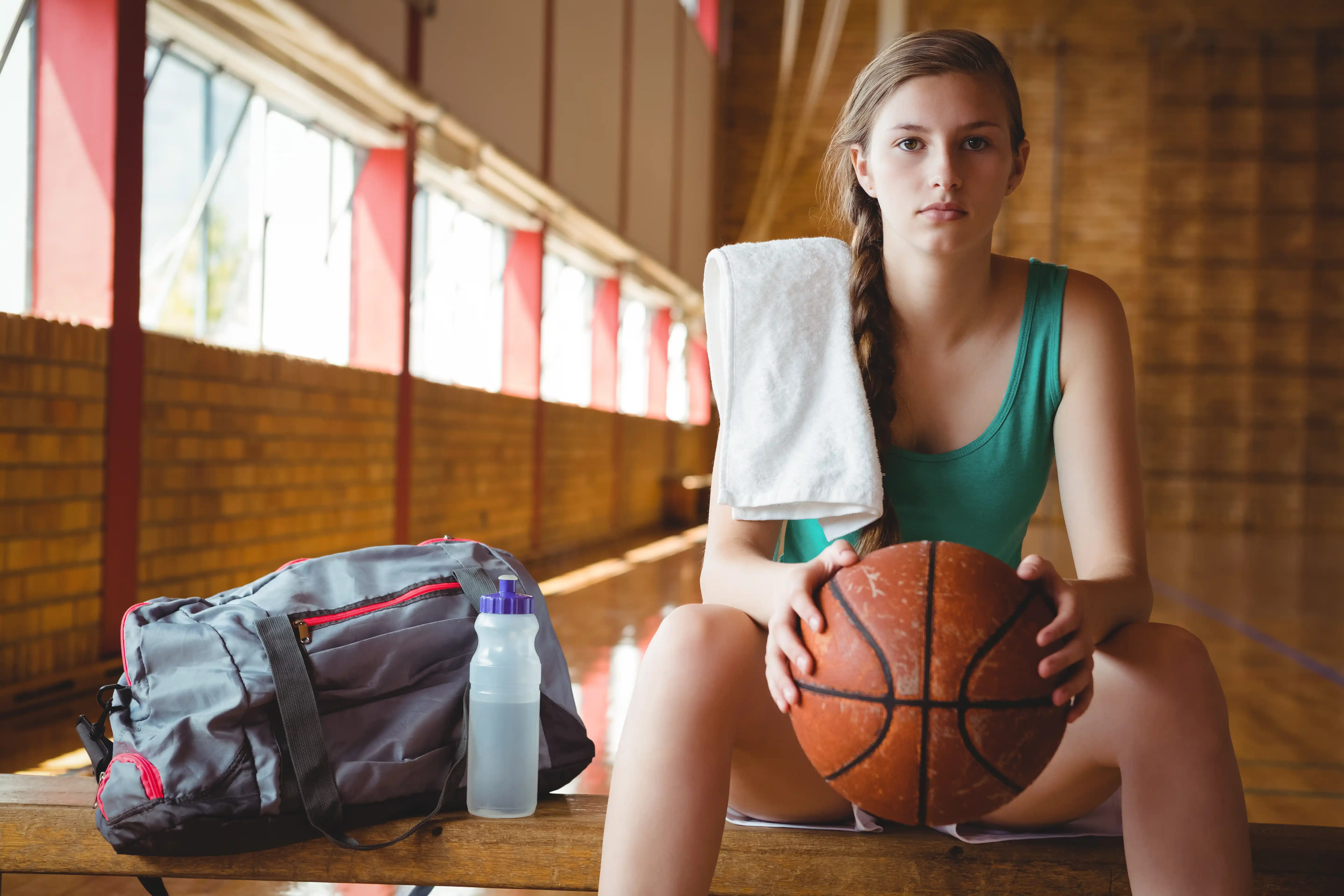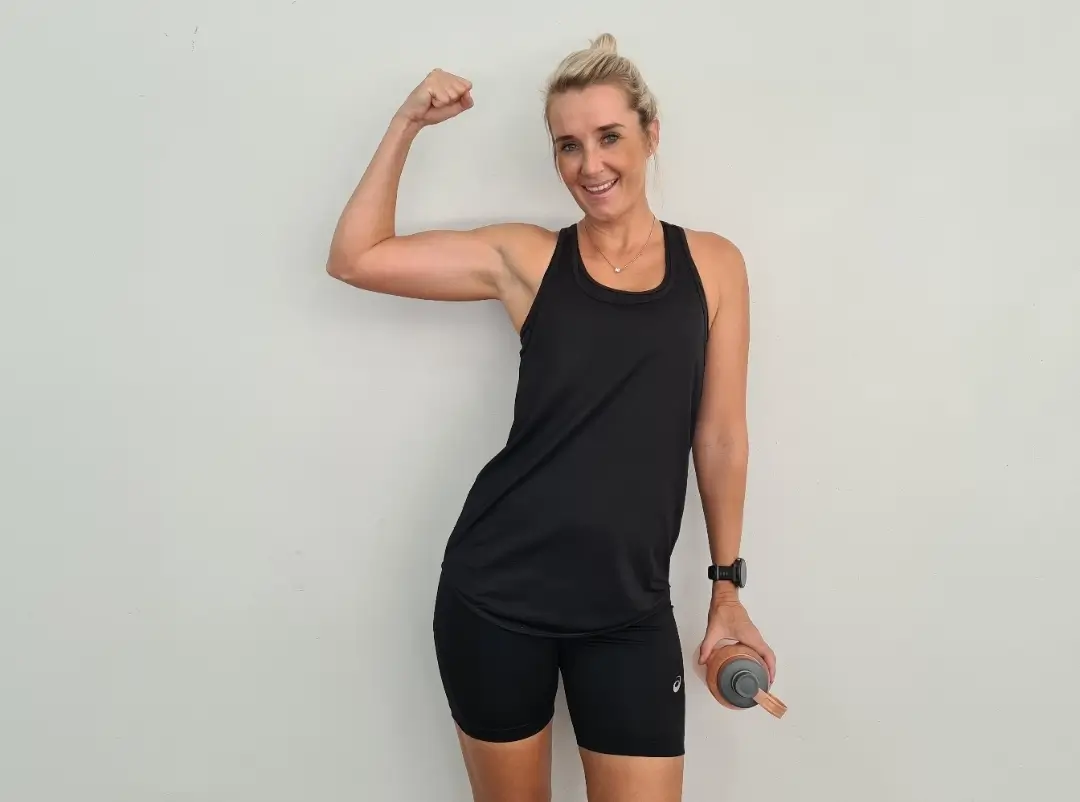Student athletes, specifically teens, often balance early practices, intense workouts, classes, homework, and a social life. With so many responsibilities, sleep often becomes a secondary priority. But the truth is, quality sleep is just as important as training and nutrition when it comes to athletic performance and overall health.
This article explores how much sleep student athletes need, why it's essential, and what risks they face when they don't get enough rest.
Why Sleep is Crucial for Student Athletes
Sleep plays a vital role in an athlete's ability to perform, recover, and stay healthy. For student athletes, whose schedules demand both physical exertion and academic focus, sleep is not a luxury; it's a necessity.
Without proper rest, the body struggles to recover from workouts, the mind becomes less sharp in class, and the immune system weakens, increasing the risk of insomnia or physical injury. Here's a closer look at why sleep matters so much.
- Physical Recovery: During sleep, the body repairs muscle tissue, replenishes energy stores, and releases growth hormones essential for athletic development. Without enough sleep, this recovery process is compromised, which can lead to slower progress, prolonged soreness, and a higher risk of overuse injuries.
- Mental Focus and Cognitive Function: Sleep is essential for memory consolidation, learning, and maintaining focus, all critical for both academics and sports. A well-rested brain processes information more efficiently, reacts faster, and makes better decisions on and off the field. On the flip side, sleep deprivation can lead to poor concentration, slower reaction times, and increased mental fatigue.
- Immune System Support: Quality sleep strengthens the immune system, helping the body fight off infections and recover from stress. Student athletes who consistently miss sleep are more susceptible to colds, the flu, and other illnesses that can interrupt both training and schoolwork. Getting enough rest helps maintain strong immunity throughout the demanding sports season.
How Much Sleep Do Student Athletes Need?
Not all sleep needs are created equal, especially when you're training, competing, and attending classes all in one day. Student athletes require more than just the average night’s rest to support both physical demands and academic performance.
The amount of sleep needed can vary based on age, level of activity, and individual recovery needs. In the following sections, we’ll break down general recommendations based on age and explore why athletes often need more rest than their non-athletic peers.
Recommended Sleep Duration for Student Athletes
- Teenagers (Ages 13-18): The American Academy of Sleep Medicine recommends that teens get 8 to 10 hours of sleep per night. For student athletes in this age group, aiming for the higher end of that range, or even up to 11 hours on particularly demanding days, can significantly boost recovery and performance. Their bodies are still growing, and the additional stress of sports requires extra downtime for full physical and mental restoration.
- Young Adults (Ages 18-25): While young adults typically need 7 to 9 hours of sleep per night, student athletes should consider 8 to 10 hours as their ideal range. This helps the body repair muscle tissue, maintain high energy levels, and stay mentally sharp throughout the day. Power naps and consistent sleep schedules can also enhance overall recovery, especially during intense training periods or competition seasons.
Why Athletes Need More Sleep Than Non-Athletes
Athletes place greater physical and mental demands on their bodies compared to non-athletes. As a result, they require more sleep to repair muscle damage, restore energy, and maintain peak performance.
Intense training sessions deplete glycogen stores, elevate stress hormones like cortisol, and place strain on joints and muscles, all of which need deep, uninterrupted sleep to fully recover.
Beyond the physical, athletes also face performance pressure and strategic thinking that make mental recovery just as important. More sleep ensures they’re ready to perform at their best, both on the field and in the classroom.
How Sleep Affects Athletic Performance

Sleep for athletes is a critical recovery tool, allowing the body to repair muscle tissue, replenish energy stores, and enhance mental sharpness. For student athletes balancing academics and training, prioritizing sleep is essential for optimal performance in both areas.
Without enough rest, even the most talented student athlete can experience setbacks in strength, endurance, focus, and overall well-being. Here's how sleep affects different areas that are critical to athletic success:
Impact on Strength and Endurance
Sleep allows the body to repair muscles and restore energy stores that are depleted during training. When student athletes get enough rest, they’re more likely to perform better during high-intensity workouts and maintain stamina throughout games or competitions.
In contrast, a lack of sleep has been shown to reduce power output, limit endurance, and slow down post-exercise recovery, making it harder to reach athletic goals.
Injury Risk and Recovery
Insufficient sleep can slow down the body’s healing process and increase the likelihood of injuries. Tired muscles are less coordinated, and reaction times are slower, which raises the risk of strains, sprains, and even more serious injuries.
Over time, chronic sleep deprivation can also lead to overtraining syndrome and burnout. On the other hand, quality sleep accelerates muscle repair and supports full recovery between training sessions.
Emotional Regulation and Stress Control
Student athletes often face pressure from school, coaches, and competitions. Sleep is essential for emotional resilience and stress management. When well-rested, athletes are better equipped to handle setbacks, manage anxiety, and stay motivated.
Sleep deprivation, however, can lead to mood swings, irritability, and increased feelings of stress or frustration, which may negatively affect both performance and team dynamics.
Cognitive Function and Focus
Whether it's memorizing plays, reacting quickly in a game, or staying alert during class, mental sharpness is critical. Sleep strengthens memory, improves reaction time, and enhances decision-making.
For student athletes, this means better judgment on the field and improved academic performance in the classroom. In contrast, poor sleep can impair concentration and increase the chances of making mistakes during both sports and studies.
Challenges Student Athletes Face in Getting Enough Sleep

Despite knowing the importance of sleep, student athletes often struggle to get the rest they need. Their schedules are packed, and daily demands can make it difficult to prioritize sleep, even when they want to.
The pressure to excel in multiple areas often leads to late nights, early mornings, and inconsistent sleep patterns. Here are some of the most common challenges they face.
Academic Demands
Balancing schoolwork with training can be exhausting. Many student athletes have to complete assignments, study for exams, or attend classes after long practice sessions. With limited hours in the day, sleep is often sacrificed in favor of academic responsibilities, especially during exam periods or project deadlines.
Sports Commitments
Sports activities such as daily practices, weekend games, competition travel, and early morning workouts consume valuable sleep time.
The physical exertion from sports also means the body needs even more rest to recover, yet many athletes end up sleeping less because of their strict training routines and evening matches
Social and Extracurricular Activities
Beyond academics and athletics, student athletes often want to enjoy a social life or take part in clubs, events, or other extracurriculars. While these activities can be fulfilling, they further reduce the hours available for rest.
The desire to stay socially connected or unwind with friends can lead to staying up late, making it harder to stick to a consistent sleep routine.
Effects of Sleep Deprivation on Student Athletes
When student athletes don’t get enough sleep, the consequences are more than just feeling tired the next day. Sleep deprivation affects the body and mind on multiple levels, gradually taking a toll on athletic performance, academic achievement, emotional health, and overall well-being.
Even short-term sleep loss can lead to noticeable declines in motivation, focus, and physical ability, and over time, the effects can become more serious and harder to reverse.
Fatigue and Decreased Motivation
Chronic sleep loss leads to physical exhaustion and mental burnout, both of which can drain an athlete's drive and discipline. Tasks that used to feel manageable, like waking up for morning training or sticking to a study schedule, begin to feel like massive hurdles.
Ongoing sleep deprivation can trigger sleep disorders, creating a cycle of poor sleep and low energy that directly impacts both physical and academic performance.
The persistent fatigue also blunts excitement and reduces the sense of accomplishment, making athletes more likely to skip workouts, underperform in class, or disengage from goals. Over time, this decrease in motivation can spiral into poor habits and a lack of progress, both academically and athletically.
Athletic Impacts
Physical performance takes a direct hit when sleep is compromised. Strength, speed, balance, and endurance all rely heavily on the body being well-rested and fully recovered. When athletes are sleep-deprived, their reaction times slow, coordination suffers, and the ability to push through intense training drops significantly.
Most of us reach our peak physical performance when we are well-rested. Sleep is essential for recovery, muscle repair, and energy replenishment. Without proper rest, even the most trained athletes can struggle to achieve their best results, as fatigue and performance deficits can set in.
Additionally, growth hormone levels, which support muscle repair and recovery, are lower with inadequate sleep. As a result, gains made through training are harder to achieve and maintain, and progress plateaus faster than it should.
Academic and Emotional Strain
For student athletes, juggling sports with academics is already a demanding task, and sleep deprivation only adds pressure to both ends. Emotionally, lack of sleep increases irritability, mood swings, and sensitivity to stress. It can also worsen symptoms of anxiety and depression, making it harder to cope with the demands of a student-athlete lifestyle.
Academically, reduced sleep means diminished cognitive function, slower processing, and poor memory retention, which makes studying and test-taking more difficult. The combined emotional and academic strain can lead to burnout or even mental health challenges if not addressed early.
Difficulty Concentrating
Even one or two nights of poor sleep can significantly reduce the brain’s ability to focus and process information. Student athletes may find it harder to follow lectures, concentrate during practice, or absorb new strategies from coaches. Their mental sharpness on the field can suffer as well, resulting in slower decision-making and more mistakes during play.
Sleep Disorders Like Insomnia
Student athletes often deal with high levels of stress, irregular routines, and demanding schedules, all of which can contribute to sleep disorders like insomnia. When left unmanaged, insomnia can lead to chronic fatigue, poor recovery, and reduced performance both on the field and in the classroom. Developing consistent sleep habits and managing stress are key to preventing it from becoming a long-term issue.
Increased Injury Risk
Perhaps one of the most serious consequences of sleep deprivation is the heightened risk of injury. Fatigue affects coordination, reaction time, and motor control, all of which are crucial for safe movement during sports. Tired muscles are less responsive and more prone to strain, while poor sleep weakens the body’s natural healing processes.
Studies have consistently shown that athletes who get fewer hours of sleep are significantly more likely to experience both acute injuries and chronic pain. Prioritizing sleep is one of the simplest yet most effective ways to stay healthy, consistent, and competitive.
Tips to Help Student Athletes Get More Sleep

Improving sleep habits doesn’t always require a complete lifestyle overhaul; sometimes, small, consistent changes can make a big difference. For student athletes, creating a sleep-friendly routine can support better rest, faster recovery, and stronger performance.
Prioritizing a regular bedtime, limiting screen time before sleep, and keeping naps short and purposeful can help regulate the body’s internal clock. It’s also important to manage time effectively by balancing training, schoolwork, and downtime to avoid late-night cram sessions or overstimulation.
Coaches and parents can play a role by encouraging healthy habits and reinforcing the value of sleep as part of an athlete’s overall training plan.
Lifestyle Adjustments
- Develop a Consistent Sleep Schedule: Going to bed and waking up at the same time every day, even on weekends, supports healthy circadian rhythms, helping the body perform at its best both mentally and physically. A consistent routine with a sufficient sleep duration makes it easier to fall asleep and wake up feeling refreshed. For student athletes, sticking to a sleep schedule also reduces grogginess before early practices and enhances recovery after late-night games.
- Create a Suitable Sleep Environment: A calm, comfortable bedroom sets the stage for restful sleep. Keeping the room cool, dark, and quiet encourages deeper sleep cycles. Tools like blackout curtains, white noise machines, or even just a tidy, clutter-free space can help athletes unwind more easily. Investing in a good mattress and pillow that support recovery is also a smart move. Investing in a high-quality mattress designed for athletes can provide the right level of support, comfort, and temperature regulation, which can contribute to better, more restorative sleep.
- Limit Caffeine and Electronic Use: Caffeine can linger in the body for hours, so it’s best to avoid it late in the day. Energy drinks and sodas may feel helpful during afternoon slumps but often interfere with falling asleep later. Likewise, screens from phones, laptops, and TVs emit blue light that suppresses melatonin, the hormone that signals your body it's time to rest. Turning off devices at least 30–60 minutes before bed can significantly improve sleep quality.
- Relaxation Techniques: Winding down with calming routines helps signal the brain that it’s time to rest. Stretching, deep breathing, meditation, or journaling can reduce anxiety and slow racing thoughts. Student athletes might also benefit from listening to calming music or taking a warm shower in the evening to ease physical tension and shift into a more relaxed state before bed.
- Nutrition and Hydration: Proper nutrition and hydration are key to supporting both sleep and athletic performance. Eating a balanced diet rich in complex carbs, lean proteins, and healthy fats can help regulate sleep hormones like serotonin and melatonin. Staying hydrated throughout the day ensures optimal energy levels and recovery, while avoiding excessive fluids before bed can prevent sleep disruptions.
- Consider Sleep Screening: If you’re struggling with sleep despite making lifestyle changes, a sleep screening can help detect any disorders, such as sleep apnea or restless leg syndrome, that might be affecting the quality of your rest. Working with a healthcare provider to get screened can improve both your sleep and athletic performance.
Balancing Sleep with Athletic Training
- Prioritize Sleep Like Training: Athletes often plan every detail of their training schedule but treat sleep as an afterthought. Instead, it should be treated as a non-negotiable part of the training regimen. Rest is where the body grows stronger and more resilient. Without it, workouts lose their effectiveness and recovery stalls. Setting boundaries around practice and social time to preserve sleep hours can make a huge difference in both performance and health.
- Take Power Naps: Short naps (15–30 minutes) during the day can help recharge energy levels without interfering with nighttime sleep. They’re especially useful after early morning workouts or long classes. However, it’s important to avoid napping too late in the day, as this can throw off your natural sleep rhythm.
- Manage Stress and Time: Balancing school, sports, and a social life can feel overwhelming, but learning to manage time and stress can reduce late-night cramming or anxiety that cuts into sleep. Creating a simple daily schedule, setting goals for each week, and making space for downtime can keep things in check. Mental health practices, like talking to a friend or counselor, also play a big role in reducing stress and supporting better sleep habits.
FAQs
How Does Sleep Affect Athletic Performance?
Sleep deprivation leads to slower reaction times, poor focus, and weaker endurance. It also raises the risk of injury and emotional burnout. Even one bad night can affect athletic performance. Rest is key for consistency and growth.
Can Overtraining Affect Sleep Quality?
Yes, overtraining can raise stress hormones and make it hard to sleep. It may cause restlessness, poor sleep, or early waking. Without recovery, both sleep and performance suffer. Balance is essential for healthy progress.
How Can I Balance School, Training, and Sleep Without Burning Out?
Time management is key. Create a daily schedule, break tasks into manageable chunks, and communicate with coaches or teachers when things feel overwhelming. And always prioritize rest; it’s just as important as training or studying.
Do Athletes Need More Sleep?
Yes, athletes generally need more sleep than the average person. During intense physical activity, the body undergoes stress and repair, requiring extra rest for optimal recovery. Sleep helps improve performance, reduce injury risk, enhance cognitive function, and support muscle recovery. Depending on the intensity of training, athletes may need 8–10 hours of sleep, or even more, to maintain peak performance.
Conclusion
For student athletes, quality sleep isn't just a luxury; it's a key part of their training and overall success. Balancing academics, sports, and social life can make it challenging, but prioritizing sleep is essential for peak performance, recovery, and mental well-being.
By understanding how much sleep they need and making a few lifestyle adjustments, student athletes can boost both their physical and academic game. After all, rest is just as important as reps.
Karen Barnard
Karen is a Human Movement Science expert and a certified sports nutrition and massage therapist. At Sleepiverse, she combines her passion for human movement science and sleep health to educate herself and her readers about healthier sleep. In addition to writing articles, Karen manages a fitness studio offering private training, athletic conditioning, and sports massage therapy. She focuses on providing people with a holistic environment for people to reach their health goals, often incorporating stretch therapy to promote mental tranquillity and help people improve their sleep.


